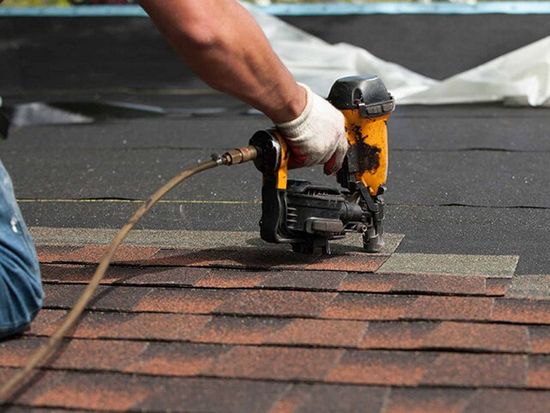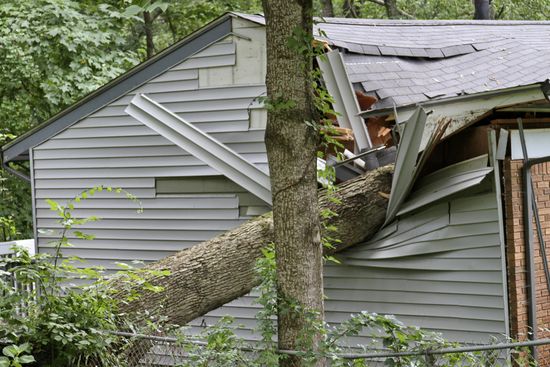Introduction
When it comes to home improvement, few projects can transform your property as significantly as a new roof. The right roofing material can enhance your home's aesthetic appeal, improve energy efficiency, and provide protection from the elements. However, just as vital is understanding the various types of roofing materials available, their unique characteristics, and how they require specific repairs and maintenance. In this comprehensive guide, we will delve into "Understanding the Different Types of Roofing Materials and Their Repairs," offering insights that empower homeowners to make informed decisions about their roofs.
In this article, we will explore everything from traditional asphalt shingles to modern metal roofing systems. We'll discuss common repairs, costs associated with roof maintenance, and what you should look for when hiring licensed roofing contractors. By the end of this piece, you'll have a robust understanding of roofing materials and how to maintain them effectively through proper repair services.
Understanding the Different Types of Roofing Materials and Their Repairs
1. Asphalt Shingle Roofing
1.1 Overview of Asphalt Shingle Roofing
Asphalt shingles are one of the most popular roofing materials in North America for residential homes. Made from a base mat of fiberglass or organic materials coated with asphalt and granules, they offer an excellent balance between cost-effectiveness and durability.
1.2 Common Issues with Asphalt Shingles
Despite their popularity, asphalt shingles can suffer from various issues:
- Curling Cracking Missing shingles
These problems often arise due to age, improper installation, or severe weather conditions.
1.3 Asphalt Roof Repair Services
If you're experiencing issues with your asphalt roof, consider hiring certified roofing contractors who specialize in asphalt roof repair services. They can provide essential services like:
- Roof leak detection Roof patching services Emergency roof leak repair
2. Metal Roofing
2.1 Benefits of Metal Roofing
Metal roofs have gained traction in recent years due to their longevity (often 40-70 years), energy efficiency, and low maintenance needs.
2.2 Metal Roof Repair Challenges
While metal roofs are durable, they are not immune to damage:
- Rusting Dents from hail or debris Loose panels
If you notice these issues on your metal roof, it's crucial to seek professional help for metal roof repair.
2.3 Cost Estimates for Metal Roof Repairs
The cost for metal roof repairs varies widely based on factors such as:
- Type of metal used Extent of damage Consulting with a reputable roof repair company can provide you with an accurate estimate.
3. Tile Roofing
3.1 Characteristics of Tile Roofing
Tile roofing offers a unique aesthetic appeal but is often heavier than other materials like asphalt or wood shakes. It's incredibly durable but may be prone to cracking under extreme temperature changes.
3.2 Common Problems with Tile Roofs
Some common issues include:
- Cracked tiles Leaks due to broken seals
Regular inspections by licensed roofing contractors are recommended for tile roofs.
3.3 Repairing Tile Roofs
When repairing tile roofs, ensure that only experienced professionals handle the job to maintain the integrity of the structure.
4. Flat Roofing Systems
4.1 Understanding Flat Roofs
Flat roofs are commonly found in commercial buildings but can also be used in residential properties where space is at a premium.
4.2 Flat Roof Repair Techniques
Because flat roofs often accumulate water, they require specialized attention:
- Regular inspections are necessary. Flat roof repair services may include applying waterproof membranes or patches.
5. Wood Shake Roofing
5.1 Aesthetic Appeal of Wood Shake
Wood shake roofs provide natural beauty but require more upkeep than other types due to susceptibility to rot and insect damage.
5.2 Challenges in Maintaining Wood Shake Roofs
Common issues include mold growth and splitting shakes over time.
6. Commercial vs Residential Roofing Services
6.1 Differences Between Commercial and Residential Roofing
The key differences lie in design complexity and material choices available for each category:
| Feature | Residential | Commercial | |---------------------------|--------------------------------------------|---------------------------------------------| | Design Complexity | Usually simpler | Often complex with multiple layers | | Material Options | Asphalt shingles, tile | PVC membranes, built-up roofing | | Maintenance Needs | Regular inspections | More frequent due to larger areas |
7. Hiring the Best Roofing Contractors
7.1 Qualifications You Should Look For
When hiring roofing contractors:

- Ensure they are licensed. Check if they have experience with your specific type of roof.
FAQ Section
Q1: What factors affect my roof repair cost?
A: Factors include the type of material used, extent of damage, labor costs in your area, and emergency service needs.
Q2: How do I know if I need emergency roof repairs?
A: Signs include significant leaks during rainstorms or visible structural damage after severe weather events.
Q3: What should I expect during a roof inspection?
A: An inspector will assess overall condition for signs of wear or damage including checking flashings and ventilation systems.
Q4: How often should I schedule maintenance?
A: It’s advisable to conduct annual inspections along with after significant weather events.
Q5: Can I perform temporary repairs myself?
A: While some DIY methods exist (like applying patches), it’s advisable to consult professionals especially for significant leaks or extensive damage.
Q6: How long does a typical roof replacement take?
A: A standard replacement typically takes 1–3 days depending on complexity and size but may extend longer in adverse weather conditions.

Conclusion
In conclusion, understanding the different types of roofing materials available today is essential for maintaining your home’s integrity while ensuring functionality against environmental challenges over time through effective repair strategies tailored specifically for each roofing companies type mentioned above within this guide titled "Understanding the Different Types of Roofing Materials and Their Repairs." By consulting best practices outlined herein coupled with hiring experienced professionals such as licensed or certified roofing contractors when necessary ensures optimal results every step along way!
Whether you’re considering an upgrade or just need some minor fixes done; arming yourself with knowledge about your options transforms daunting tasks into manageable projects leading towards achieving peace-of-mind knowing that everything’s taken care efficiently without breaking bank—so don’t delay! Start exploring today!